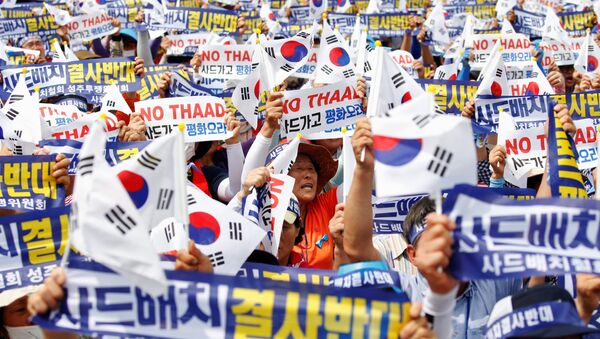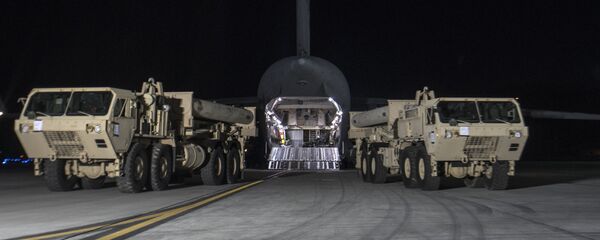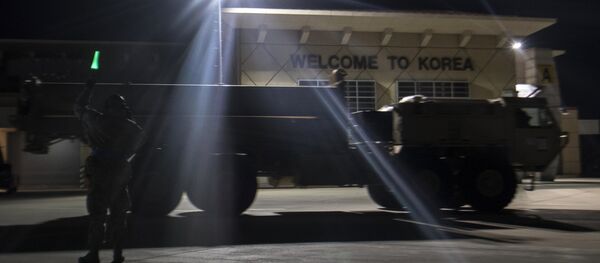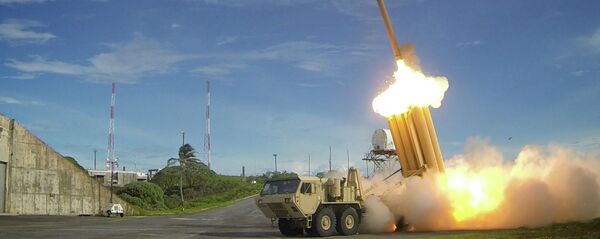Plaintiffs filed a petition endorsed by 2,550 people, and told reporters outside the court building that THAAD infringes on their right to enjoy "peaceful life, health, healthy environment and freedom of occupation," according to Yonhap News Agency, and does not follow proper procedure.
Their claims are a reaction the unilateral decision from the president’s national security council to permit it. They say the decision had no approval from the cabinet and no adequate discussion with the foreign affairs and defense ministers.
The site for THAAD’s battery includes Gimcheon city, which lies about 300 km southeast of the capital city, and Senjou, which is home to hundreds of the complainants.
Ha Joo-hee, a lawyer from the liberal advocacy group Lawyers for a Democratic Society, said, "The THAAD decision did not follow any proper procedure. No effort has been made for dialogue with residents," China’s Xinhua News Agency reports.
This comes amid economic retaliation from China, which has closed at least 23 of South Korea’s Lotte retail stores after Seoul agreed to let THAAD be deployed on their territory.
Chinese officials say the stores were closed for noncompliance with fire safety regulations.
Xinhua released a commentary in February stating, "Lotte stands to lose Chinese customers and the Chinese market. That would be a very large slice out of their business pie."
Beijing has been particularly vocal about THAAD, as the system features a AN/TPY-2 radar strong enough to penetrate deep into China’s mainland, and the country feels it could be used to monitor their intercontinental ballistic missile program.
The super microwave radar can also be harmful to the environment and the human body, Chinese media has reported.
US officials have steadfastly denied Chinese allegations, insisting that the THAAD’s sole purpose is protect Seoul from an increasingly hostile North Korea.
China has even threatened to send planes from its Air Force toward the system to jam its radar signals.
As preparations were made for the THAAD’s delivery to begin, Pyongyang’s military responded to the deployment in a statement published by the Korean Central News Agency, saying, "We once again warn the enemies that it is the steadfast will of the KPA [Korean People's Army] to make merciless retaliatory strikes to reduce South Korea to a sea in flames, debris once an order is issued."





